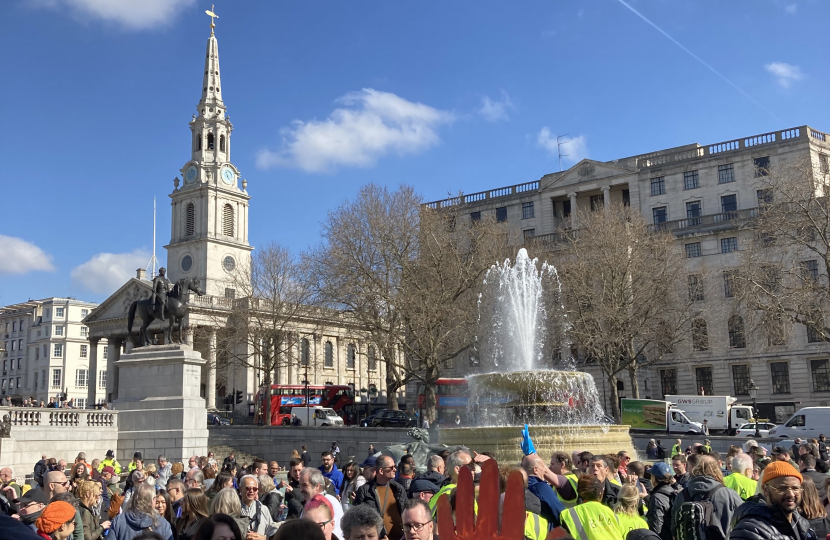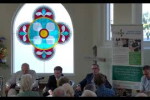The British Sign Language Bill cleared its latest hurdle in Parliament on Friday, when MPs backed the proposed legislation at its report stage and third reading.
Deaf campaigners gathered at Trafalgar Square to mark the milestone, on the same date that the UK Government officially recognised BSL in 2003.
This Private Member’s Bill, introduced by Rosie Cooper MP, will recognise BSL as a language of England, Wales and Scotland in its own right.
It will be supported by a duty on the Secretary of State for the Department for Work and Pensions (DWP) to regularly report on what each relevant government department has done to promote or facilitate the use of British Sign Language in its communications with the public.
The Bill also places a requirement on the DWP Secretary of State to issue guidance to ministerial departments on the promotion and facilitation of BSL.
The Minister for Disabled People has also announced the launch of an advisory board of BSL signers to offer guidance to the DWP on matters relating to BSL; examine how the DWP goes about increasing the number of BSL interpreters; and make sure the Access to Work scheme better meets the needs of BSL signers to support them in employment.
The Third Reading of the Bill took place in the House of Commons on Friday, and the government once again be supported its introduction into law.
The BSL Bill was first introduced on 16 June 2021 and passed the Second Reading stage on 28 January 2022, receiving unanimous cross-party support.
The Minister for Disabled People has worked closely with Labour MP Rosie Cooper and D/deaf people’s charities and organisations, such as the Royal National Institute for Deaf People (RNID) and the British Deaf Association (BDA), to ensure the Bill effectively meets the needs of those who will benefit most.
The Bill will now be considered by the House of Lords.
Additional information
- Figures from the British Deaf Association suggest that 151,000 people use BSL in the UK, 87,000 of which are D/deaf.
- A Private Members Bill on BSL was introduced on 16 June 2021 and had its Second Reading on 28 January 2022.
- The Bill is recognising BSL as a language of England, Wales and Scotland in its own right supported by a duty on the Secretary of State for Work and Pensions to regularly report on what each relevant government department has done to promote or facilitate the use of British Sign Language in its communications with the public.
- The Bill also places a requirement on the DWP Secretary of State to issue guidance on the promotion and facilitation of BSL, which will be developed together with D/deaf BSL signers as part of the advisory board.
- The Bill will be supported by a package of non-legislative measures, including:
- establishing a non-statutory advisory board of BSL signers to advise the DWP Secretary of State on matters related to BSL;
- examining how the government might increase the number of BSL interpreters;
- reviewing how the DWP might work to ensure the Access to Work fund helps BSL users; and
- consider how government can further facilitate and promote BSL usage.
- The Access to Work scheme is available to help people who are disabled or have a physical or mental health condition stay in employment and covers those who work from home. It can provide grants up to £62,900 to keep a job accessible.


